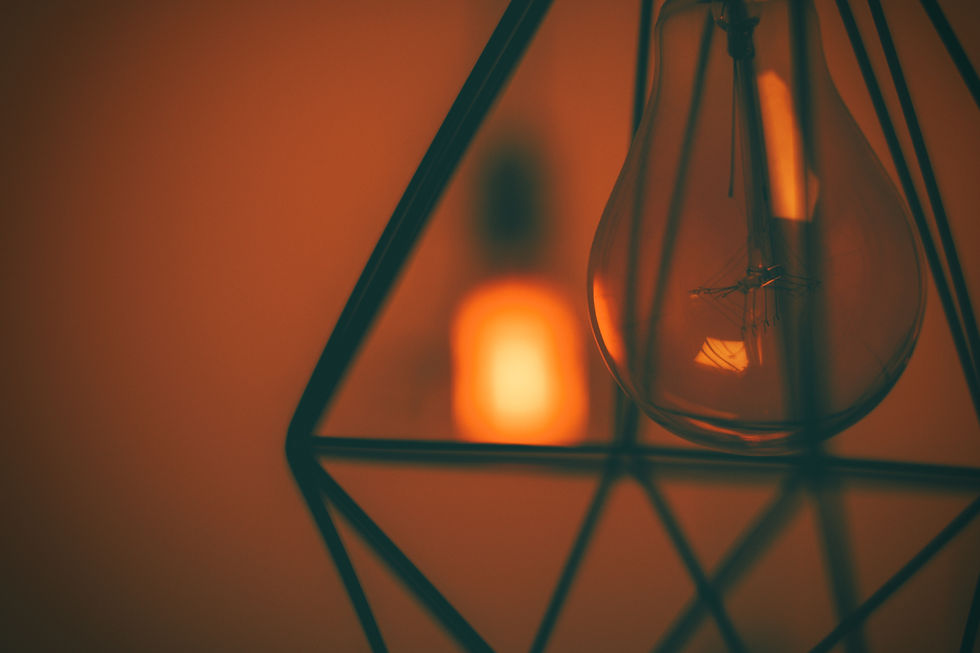5 Tips For A Good Night's Sleep
- jayclairefitness
- Aug 22, 2023
- 3 min read
Updated: Oct 17, 2023
Sleep is a massively undervalued part of healthy living. Not only is it an essential for optimum recovery after training but it affects our day to day in numerous ways, from mood to concentration, and self confidence to productivity.
If you struggle to get to sleep, wake in the night, or have poor quality of sleep, today's post is for you.

Your body does the vast majority of its recovery work while you sleep, increasing blood flow to provide muscles with oxygen, nutrients and growth hormones to help them repair and rebuild stronger, so it's important to make sure you're getting between 7-9 hours of shut eye each night - especially if you're regularly resistance training!
Lack of sleep has also been associated with weight gain due to the increased production of the hunger hormone, grehlin, following a bad night's sleep. Studies have found that a poor night's sleep can lead to us consuming as many as 500 calories more the following day, as our response to feeling tired is often to reach for high energy (high calorie) foods.
Getting into good habits that prepare your body for rest and improve the quality of your sleep is an absolute game changer and will benefit your waking day immeasurably, not to mention your performance and recovery in the gym!
Below are my 5 tips for getting a good night's sleep:

1. Adjust Your Lighting
Bright artificial lights have the same effect on our bodies as day light. If you're exposed to harsh lighting before bed, it signals to your body that it's still daytime, delaying the release of melatonin (the sleep hormone).
90 minutes before bed, switch to less intense lighting like warm lamp light and reduce blue light exposure from screens. This tells your brain it's time to start winding down for bed, as it replicates the natural light of the setting sun, signalling the end of the waking day and triggering the release of melatonin.
Is your bathroom light very intense? Consider a softer over-sink light for evening time.
Can't cut your bedtime scrolling addiction? Get your hands on a pair of blue-light filtering glasses to reduce the impact of your screen light.

2. Take A Warm Shower
As the sun sets and evening draws in, the air becomes cooler. Transitioning from warm to cool temperatures is another way to mimic the setting sun and release melatonin, preparing us for sleep.
A great way to achieve this is by taking a warm shower or performing some (gentle!) exercise before migrating into the bedroom which should be kept at a cool temperature to create a gentle drop in body temperature.
Consider removing the duvet from its cover during hot summer months and sleep under the loose sheet to prevent overheating during the night and promote restful sleep.

3. Avoid Over Consumption Before Bed
Whilst going to bed hungry can disrupt your quality of sleep, going to bed on a full stomach can be even worse. Eating a large meal within 3 hours of bedtime can lead to digestive issues that may lessen your sleep quality during the night. Sugary foods should also be avoided in the lead up to bedtime as these have a stimulant effect on the body that directly oppose our desire to sleep.
Caffeine remains in the body for up to 6 hours, so should be avoided within this time frame. E.g. if bedtime is 10pm, have your last coffee prior to 4pm to prevent sleep disruption.
Although strictly speaking alcohol is deemed a relaxant, it's affect on the brain is known to cause poor sleep quality, so whilst many use it as a tool for falling asleep the overall impact of alcohol before bed is somewhat damaging.

4. Get Moving
Daytime exercise is a fantastic way of encouraging sleep at night. Regular exercise depletes our energy and increases our need for sleep, making it easier to get some shut eye at night.
Exercise is also known to release endorphins and relieve stress, which can be an obstruction to sleep for many adults, whilst also helping to regulate our natural circadian rhythms which dictate when it's time to wake and sleep.
Just 30 minutes of moderate exercise can help speed up the process of falling asleep and improve overall sleep quality during the night.

5. Load Up On Magnesium
Whether you're suffering from tight muscles after an intense workout or can't switch off your worrying brain, magnesium is known for its properties that relax both the body and the mind - the perfect pre-bedtime mineral.
It can be taken in supplement form with dinner or can be found in everyday foods such as almonds, bananas and dark chocolate.
If you found this article useful, why not share it with a friend?
Stay happy, stay healthy.




Such a helpful post! Sleep hygiene truly impacts mood, productivity, and even hormonal balance—this article does a great job highlighting that connection using fitness and recovery-focused examples. Exposure to a bright white screen before winding down (in moderation and at the right time) can help reset your circadian rhythm and boost focus and serotonin levels.
Boost your sleep quality and screen clarity today with Bright WhiteScreen — your minimalist companion for lighting balance and visual wellness.